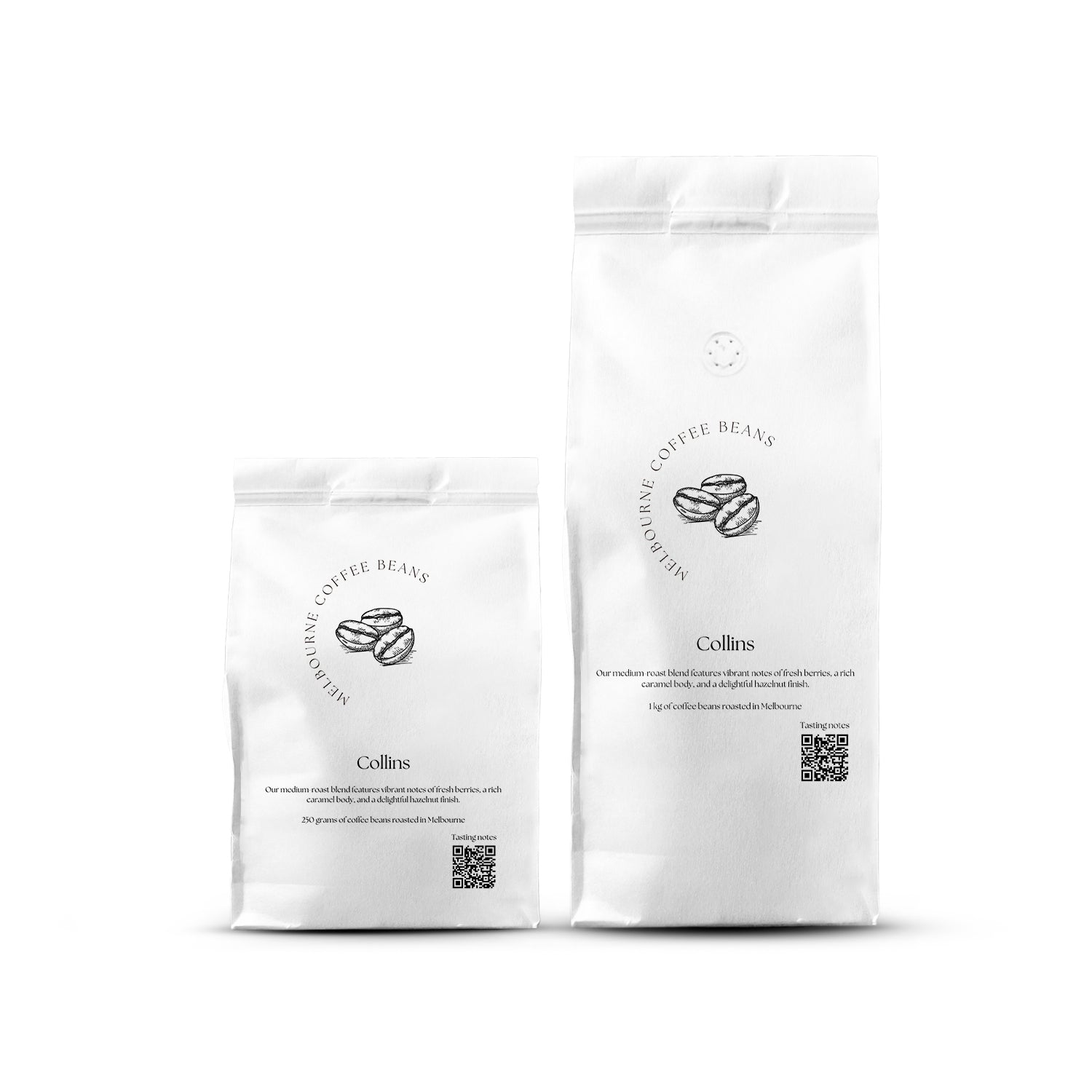Want to keep your coffee beans as fresh as possible? Proper storage is key to retaining their taste and aroma.
We'll explore the best ways on how to store coffee beans and consider important factors like light exposure, temperature changes, and humidity levels.
Read on to learn the secrets of preserving your beans' quality so that every cup of coffee stays exceptional.
Key Takeaways
-
Store coffee beans in airtight, opaque containers to keep them fresh and prevent exposure to oxygen, light, heat, and moisture.
-
Buy coffee beans in smaller quantities to ensure you’re always using fresh beans and minimise their air exposure.
-
Avoid storing coffee beans in the fridge or grinder hopper, and consider using vacuum sealing or one-way valve bags for extended freshness.
Understanding Coffee Bean Storage Basics
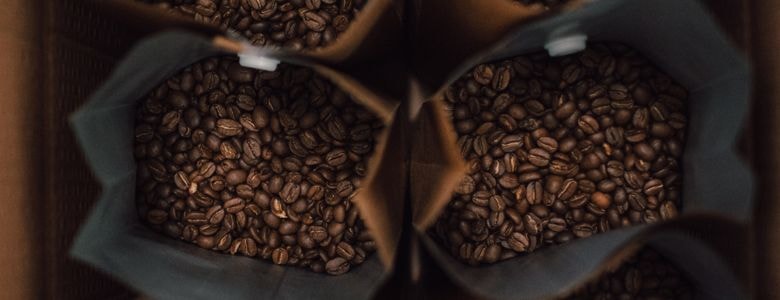
Storing coffee beans might seem simple, but there's more to it than you might think. To keep your coffee tasting great, you must understand the basics of coffee bean storage. This means knowing why proper storage matters and what factors affect the freshness of your beans.
Proper storage is crucial because coffee loses its freshness right after roasting. Without the right storage, you could have stale and dull coffee. Investing a little time and effort in correctly storing your beans can greatly enhance your coffee experience.
Let's explore why proper storage is important and the main factors that can affect the freshness of your coffee beans.
Why Proper Storage Matters
Maintaining the freshness of coffee beans is essential to preserve their precious oils and aromas. These elements are vital for producing a rich flavour and enticing scents in your brew.
Improper storage can cause these components to break down, reducing the sensory enjoyment of your coffee.
Use coffee beans soon after they've been roasted, especially once you've opened the package. Proper storage methods and containers help keep your beans fresh, ensuring every sip delivers maximum taste satisfaction.
Factors That Affect Coffee Freshness
Various environmental elements can compromise the freshness of coffee beans. Oxygen, light, heat, and moisture are the main factors that degrade your coffee's quality. Let's explore how each of these elements affects your beans.
Oxygen is one of coffee beans' biggest enemies. When exposed to air, beans oxidize quickly, losing their distinctive flavours and aromas. This is why keeping them in sealed containers is crucial.
Light and heat are also harmful. UV rays break down flavour-inducing chemical compounds in coffee, while high temperatures can make the oils in beans go rancid.
Moist conditions promote mould and bacterial growth because coffee beans absorb moisture from their environment. Controlling humidity is critical when storing coffee beans to prevent this.
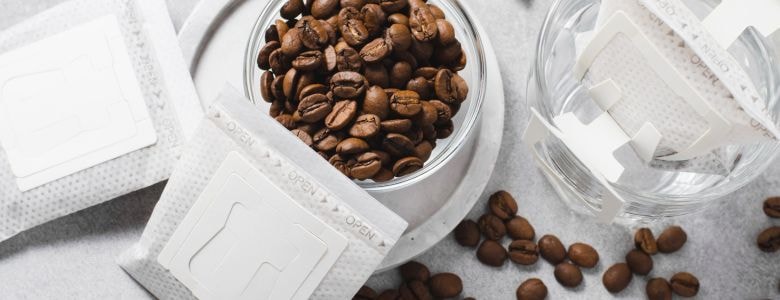
Best Practices for Storing Coffee Beans
Now that we’ve covered the basics let’s move on to the best practices for storing coffee beans. These include using airtight containers, keeping your beans away from light and heat, and storing them in small quantities.
By following these tips, you can ensure your coffee remains fresh and flavourful.
Using airtight containers can protect your coffee beans from:
-
air
-
moisture
-
heat
-
light
It’s one of the simplest yet most effective ways to preserve the quality of your beans. Additionally, keeping your beans in a cool, dark place can help maintain their flavour and extend their freshness.
Lastly, consider buying smaller batches of freshly roasted coffee more frequently to ensure you always have a supply of roasted coffee beans. This minimises the beans’ exposure to air and keeps them tasting their best.
Use Airtight Containers
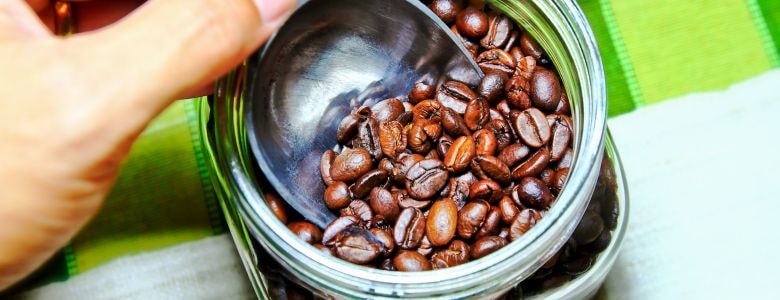
To keep your coffee beans fresh, it's essential to use an airtight canister. This container keeps out air, which can cause the beans to dry out or absorb unwanted flavours. Look for containers that block light and have airtight seals.
Retail packaging often doesn't preserve freshness well over time. Investing in an airtight canister specifically designed for coffee storage is worthwhile. These containers help your coffee retain its delicious flavour and stay fresher for longer.
Keep Away from Light and Heat
Store coffee beans away from light and heat to preserve the flavour and prolong the freshness of coffee beans. Choose a cool, shadowy location instead of clear canisters that let light in, which can compromise the taste.
Use dark-tinted containers instead of transparent ones to minimise oxidation. Keep these opaque containers away from stovetops and direct sunlight. This enhances your chances of enjoying high-quality, fresh coffee.
Store in Small Quantities
Purchasing freshly roasted coffee in smaller quantities can help preserve its freshness. Buy just enough roasted coffee beans for one or two weeks. This reduces the chances of your beans going stale and ensures you always enjoy fresh coffee.
It's also helpful to divide your supply into smaller portions when storing it, especially if you use a larger container. This strategy minimises air and moisture exposure, keeping each cup of freshly roasted coffee as fresh as possible.
Storing Coffee Beans at Room Temperature
Storing coffee beans at room temperature is practical and convenient for everyday use. To keep your beans fresh, follow proper storage guidelines: use airtight containers and place them in optimal conditions.
To protect the taste of your coffee beans and ground coffee, keep them away from heat and direct sunlight. Store them in a cool, shaded environment to prolong their freshness.
Ideal Storage Conditions
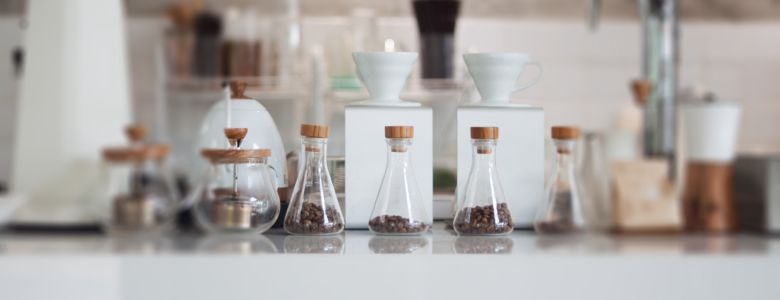
Store coffee beans in an airtight container in a cool, dark place to keep them fresh and flavorful. This prevents exposure to excessive heat, such as near an oven or in direct sunlight on your kitchen countertop.
Avoid storing coffee beans next to an espresso machine due to the heat it emits. Letting coffee beans reach room temperature before unsealing the container can prevent condensation issues.
Following these tips will help preserve the quality of your coffee for longer.
How Long Will Coffee Beans Last?
To enjoy the best flavour, consume coffee beans within four to five weeks after their roast date. While the beans won't spoil immediately after this period, their flavour will decline, resulting in a less enjoyable cup of coffee.
Use the beans within specific time frames based on your brewing method for the freshest taste. For filter coffee, the optimal window is two days to four weeks after roasting.
For espresso, it's one week to six weeks. Using the beans beyond these intervals is still safe, but the coffee won't have the same exquisite taste.
Freezing Coffee Beans: Pros and Cons
Storing coffee beans in the freezer is a practical method for keeping them fresh, especially when you have a bulk amount that won't be used immediately. This technique has both benefits and drawbacks.
Freezing your coffee beans can maintain their taste and significantly extend their shelf life, potentially for several years.
However, the quality may be compromised due to temperature changes each time the beans are removed and returned to the freezer.
When to Freeze Coffee Beans
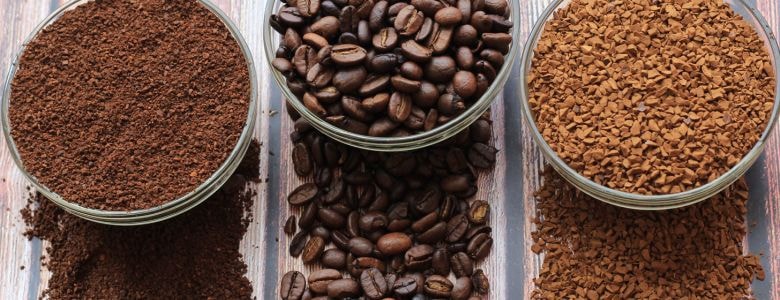
When you buy coffee beans in large quantities that won't be used within 2-3 weeks, freezing them is a good option. This method is especially helpful for those who purchase bulk amounts and need a way to preserve the beans for a longer period.
However, it's important to freeze the beans properly. Improper handling can decrease their quality.
Ensure you use airtight containers and avoid frequent temperature changes to maintain their freshness.
How to Freeze Coffee Beans Properly
To properly store coffee beans in the freezer, follow these guidelines:
1. Separate your coffee beans into smaller quantities.
2. Store each batch in airtight containers or vacuum-sealed bags.
This method reduces exposure to moisture and protects against freezer burn, which can negatively affect the taste of your coffee.
When using frozen coffee beans, take out only enough for a week. This prevents condensation from forming on the beans.
Avoid multiple cycles of freezing and thawing, as this can compromise the quality of the beans.
Avoiding Common Storage Mistakes
Preserving the freshness of coffee beans, especially whole ones, can be tricky, so storing them correctly is crucial to maintaining their high quality.
Avoid common mistakes like storing your beans in the refrigerator or leaving them in the grinder hopper. These practices can make your beans go stale and possibly become contaminated. Ensure you use proper storage techniques to keep your coffee beans fresh and flavorful.
Don't Store Beans in the Fridge
Keeping your coffee beans in the refrigerator can cause them to absorb moisture and various smells, altering their taste. The humidity in a fridge can speed up the aging process of the beans.
When you remove coffee beans from the fridge, condensation forms on them, leading to stale tastes and unwanted flavours in your coffee.
Avoid Storing Beans in the Grinder Hopper
Storing coffee beans in the hopper of a grinder can speed up oxidation, causing the beans to lose their optimal characteristics faster. Additionally, the accumulation of oils from the beans can affect the grinder's efficiency and hygiene.
Specialty Storage Solutions for Coffee Enthusiasts
Coffee enthusiasts have access to advanced storage methods to preserve the freshness of coffee beans. Options like vacuum sealing and one-way valve bags are effective for this purpose.
Specialised containers, such as Friis or Airscape, are designed with mechanisms to expel CO2 gases while preventing oxygen from entering.
This feature is crucial for keeping your coffee beans fresh longer.
Vacuum Sealing Coffee Beans
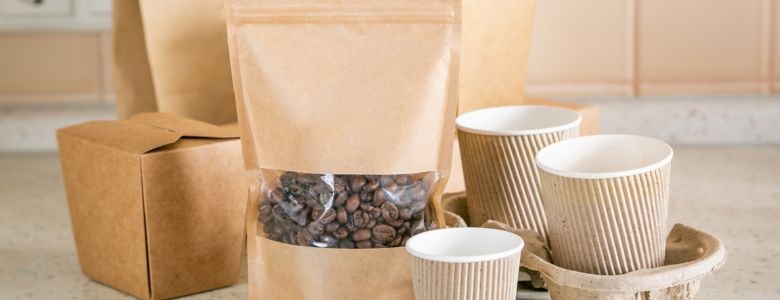
Vacuum sealing is an excellent method for prolonging the freshness of coffee beans, particularly for those who purchase large quantities.
This technique can significantly extend their shelf life, ensuring that your beans remain fresh for up to 16 months compared to the standard four-week period.
Vacuum sealing proves extremely beneficial when you need a reliable way to store ground coffee over extended periods.
It’s ideal for bulk buyers seeking a practical long-term storage option.
Using One-Way Valve Bags
For those who buy large quantities of coffee, vacuum sealing is an excellent method to prolong the freshness of coffee beans. This technique can significantly extend their shelf life, keeping your beans fresh for up to 16 months compared to the standard four-week period.
Vacuum sealing is also highly beneficial for storing ground coffee over extended periods. It's ideal for bulk buyers looking for a practical long-term storage option.
Maintaining Freshness After Roasting
Understanding the importance of resting periods is essential for preserving the freshness of freshly roasted beans. It is crucial to allow these beans to degas and develop their flavour and aroma profiles.
Check the roast date on the package to determine when to brew your coffee. The best time to brew is usually between 4 and 14 days after roasting. This period ensures you enjoy your coffee at its peak quality.
Resting Period for Freshly Roasted Beans
Allowing coffee beans to rest for at least 24 hours after roasting can significantly enhance their taste. While this resting period can vary, it's generally recommended that beans rest for 2 to 7 days for optimal flavour.
The length of the resting period depends on the roast level. Dark roasted beans typically require 1 to 5 days of rest.
Medium roasts benefit most from 5 to 7 days, while light roasts reach peak flavour after about 10 to 14 days.
Best Time to Brew
Typically, the best window for brewing coffee is 4 to 14 days after roasting. This allows the flavours to fully develop, as the beans need time for degassing and maturation.
The perfect time frame for brewing also depends on the roasting level. Beans roasted for espresso benefit from a longer resting period than those roasted for filter methods.
Brewing at this optimal moment ensures peak flavour quality in your cup of coffee.
Summary
Storing coffee beans correctly is crucial for preserving their freshness and taste. Understanding the factors that affect their longevity and following optimal storage methods will enhance the quality of your brew.
Use airtight or vacuum-sealed containers and keep beans in a cool, dark environment. You can choose room temperature storage or freezing for extended periods.
Avoid common mistakes and invest in specialised storage options to significantly improve your coffee experience. Enjoy your brewing!
Frequently Asked Questions
How long do coffee beans last?
To guarantee the optimum flavour, it is recommended to use coffee beans within 4-5 weeks of their roast date. After this timeframe, the taste quality of the coffee produced from these beans may decrease noticeably.
Can I store coffee beans in the fridge?
It is inadvisable to store coffee beans in the refrigerator. They are prone to absorbing moisture and odors, which can deteriorate their taste.
What are the best storage conditions for coffee beans?
To preserve the freshness of your coffee beans, store them in a container that is impervious to air, situated in an area shielded from light and warmth, ideally a cool and shadowy spot.
